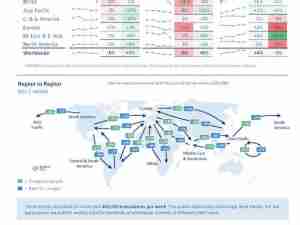U.S. Airlines Tumble After Delta Issues Weak July Revenue Report
By: | Aug 02 2016 at 12:26 PM | Air Cargo
By: | Aug 02 2016 at 12:26 PM | Air Cargo
Boeing Co. burned through $3.93 billion in cash in the first quarter, a less dramatic drain than analysts had predicted, as the embattled planemaker continues to slow output to get…
View ArticleFor a company that has been in crisis mode for as long as Boeing Co., the planemaker has some startlingly upbeat support from Wall Street.
View ArticleGeneral Electric Co. raised the full-year profit guidance for its aerospace business, driven by an increase in revenue from commercial aircraft engines and services.
View ArticleUnited Parcel Service Inc. reported profit higher than analysts’ estimates as the courier’s headcount management and restructuring of its delivery routes began to bear fruit.
View Article
JetBlue Airways Corp. said revenue this quarter will fall more than analysts expected as excess flying capacity holds down fares in Latin America, a major portion of the carrier’s international…
View Article© Copyright 1999–2024 American Journal of Transportation. All Rights Reserved